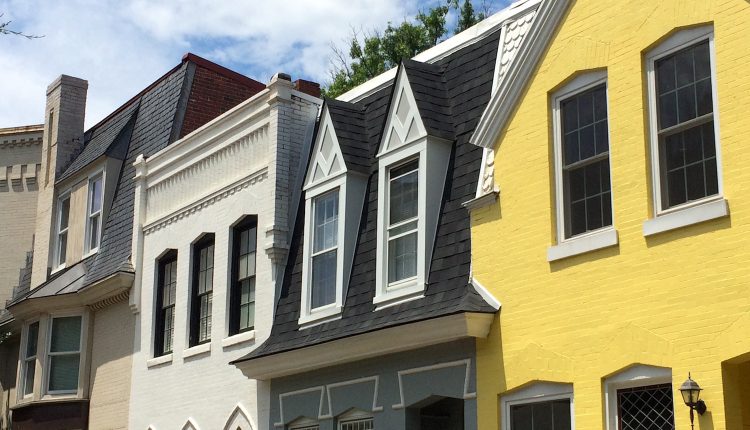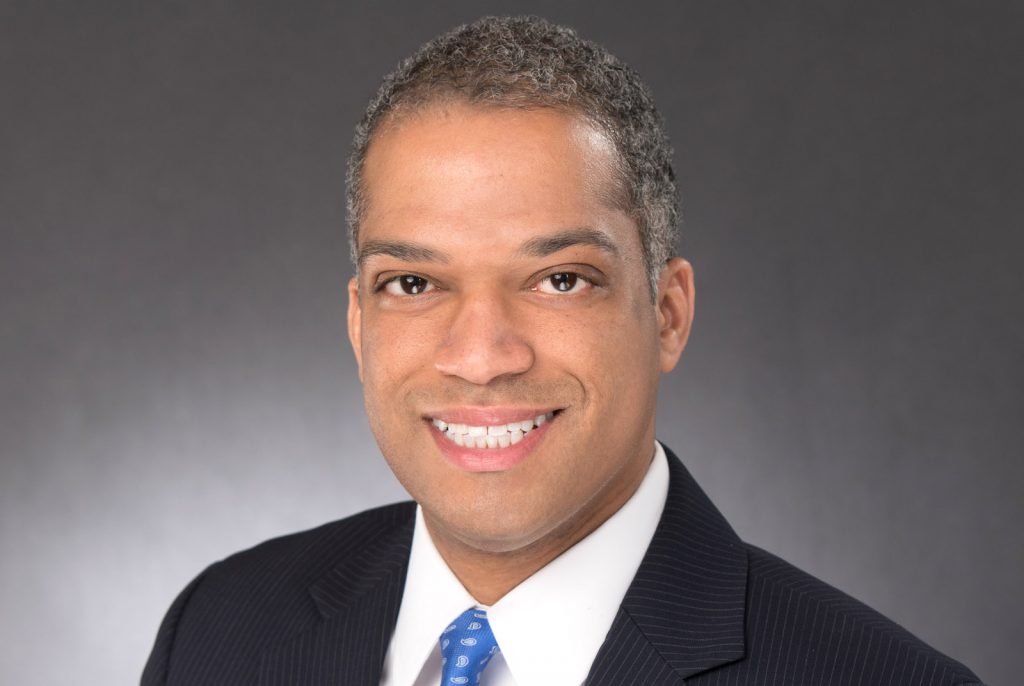
DC Council shelves vote on bill to increase homestead deduction
The DC Council declined to take a vote Tuesday on expanding a tax break for homeowners in face of opposition from several lawmakers and advocates for the needy who claim it primarily benefits high-income residents.
It marked a quick reversal over the past 24 hours amid a campaign against the bill by groups such as the DC Fiscal Policy Institute and Jews United for Justice. On Monday morning, Council Chairman Phil Mendelson had predicted the bill would pass the next day, though potentially with a caveat that it would take effect only with approval of future funding to offset the estimated four-year cost of $115 million.
The legislation would have increased the amount of what’s known as the “homestead deduction,” which reduces the property tax bill for any eligible owner-occupied home by effectively lowering the assessed value when calculating the tax liability. At Mendelson’s behest, the bill was referred back to the Committee of Finance and Revenue, which had endorsed the bill last month.
The legislation from Ward 4 Council member Brandon Todd would have raised the deduction from $74,850 to $125,000.

Mendelson and other supporters said increasing the deduction would give homeowners relief from rising property taxes. But advocates for the poor believe the District should target relief for low-income residents, particularly expanding assistance for renters, instead of offering all homeowners a tax break.
At-large Council member Robert White drafted an amendment to the bill but ultimately did not get a chance to introduce it, with Mendelson cutting off any discussion when he moved to send the bill back to the Finance and Revenue Committee. His changes — which included eliminating the increase to the homestead deduction — would have cost $78.5 million less and offered some benefits to renters through the expansion of another tax credit.
Todd said he was disappointed with the council’s action Tuesday.
“I’m hopeful that we can go back to committee and we can bring it back some point soon,” he said in an interview, adding: “What I hear from residents who are squarely in the middle class is that they need relief, and that real estate property taxes are a challenge.”
Council members debated the legislation at a breakfast meeting Tuesday morning. At-large member David Grosso said he shared activists’ concerns and also did not want to pass a bill that was unlikely to be implemented. Jeffrey DeWitt, DC chief financial officer, wrote in a fiscal impact statement that the increase would cost the city $115 million over the next four years, money that the District does not have currently. Mendelson, who supports the bill, said on Monday the council might have to wait a year or more before funding the tax cut if it passed.
Progressive activists exited the chamber smiling after the bill was referred to committee.
“If the notion is that some families are having trouble paying their property tax bills, then the best approach is to not [have] a blanket tax break for every single homeowner … but instead something more targeted for low and moderate incomes,” Ed Lazere, director of the liberal DC Fiscal Policy Institute, said in an interview last week.
White’s amendment would have expanded the District’s Homeowner and Renter Property Tax Credit, also known as “Schedule H,” giving financial assistance to low- and moderate-income homeowners and renters.
Todd told The DC Line today that he did not support White’s amendment. “It’s very tailored,” he said. “What I support is something to help people who are really in the middle class, every homeowner.”
Ward 2 Council member Jack Evans, who chairs the Committee on Finance and Revenue, said in an interview today that he hopes White will introduce his bill as stand-alone legislation. “There’s no reason you couldn’t pass them both,” he said.
Evans, a supporter of increasing the homestead deduction, concurred with Todd that the move would benefit the middle class. He said Mendelson recognized that there weren’t enough votes to pass the bill, necessitating the referral back to his committee. “A number of people have ideas about how to make it a better bill,” he said. “Maybe there’s a compromise.”
Todd’s legislation is identical to a bill introduced in 2017 that never came up for a full vote. The bill passed the Committee on Finance and Revenue with a vote of 4-1 on Feb 13. At-large Council member Elissa Silverman was the lone dissenter.
Silverman pointed to a report last October from the DC Policy Center, a research arm of the pro-business Federal City Council, that said such tax breaks for homeowners worsen racial disparities, with residents of certain fast-appreciating neighborhoods getting the most value from the deduction and the city’s property tax cap for owner-occupied homes. “I’m fearful that what this approach would do is actually be contradictory to one of our stated goals as a council, which is to create more racial equity in our city,” Silverman said during the committee debate.
Lazere said part of the money could instead be spent on providing rental assistance for thousands of the city’s poorest families. He added that the bill would exacerbate economic and racial inequality, as most homeowners are white.
“Historic discrimination has denied residents of color the same access to homeownership as white residents,” the DC Fiscal Policy Institute said in a press release. “Today, 56 percent of DC homeowners are white, and just 36 percent are Black and 7 percent Latinx.”
At-large Council member Anita Bonds, who supported the bill in committee, said on Tuesday that she was concerned the District would not be able to afford the bill’s price tag following reports the District lost $47 million in revenue due to the federal government shutdown. She also said she was open to tailoring the deduction increase to more directly assist lower-income homeowners.
Prior to the committee vote, Bonds had rebuffed the argument that concerns about racial equity should nix the bill, saying the change would help a broad array of homeowners.
“I think it’s a positive step for us to take,” Bonds said. “I agree there’s an issue of equity … but I think do we really want to say no to the pressures that current homeowners are facing because we are trying to prevent gentrification [when] this would just be a small tool?”
At yesterday’s press conference, Mendelson defended the bill, countering accusations that it represents a giveaway for millionaires, as some critics have said. He also pointed out that the income tax is the District’s primary way to tax wealth, though he did say he would “look at this more closely” amid the debate.
Mendelson noted that the deduction reduces tax liability by the same amount for homeowners with assessments over the cap, resulting in savings that are more noticeable on a $1,000 tax bill than a $10,000 liability. “This is not a measure to help wealthy people,” he said.
The homestead exemption has existed since 1978 and was originally implemented to provide relief from property taxes for poorer residents, according to a council committee report. Mendelson estimated that the current relief from the homestead deduction is about $700 a year.
Lazere, who unsuccessfully challenged Mendelson for council chairman last year, said the legislation is “tilted to folks who are already doing well and have higher incomes.” The DC Fiscal Policy Institute estimated that about 40 percent of the benefits would go to households making over $150,000 annually, a category that accounts for about a fourth of DC households.
“Why would we be considering a tax break that goes to the wealthiest homeowners in DC?” he asked.


Why not target this to house worth less than 1 million dollars?